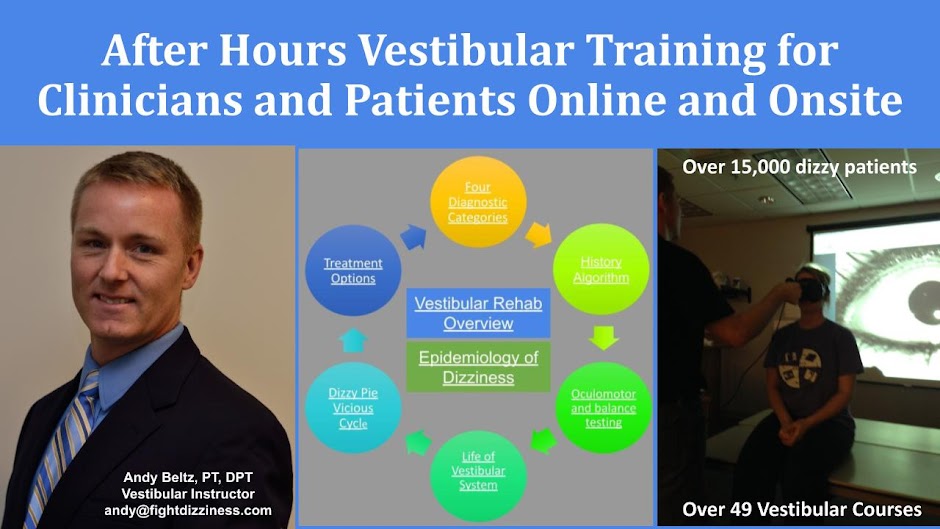seems to be something I hear many individuals report. Many say they never had motion sickness as a child, but once they hit their 20s and 30s they began to not be able to tolerate motions such as riding on rollercoasters, in the back seat of a car or in a boat. So why does this occur?
I think one reason could be do to genetic changes that occur in our vestibular system over time. Another possibility is we become less mobile as we get older. If you don't use the vestibular system, it will adjust to a less mobile lifestyle. If you don't us it you lose it. As kids, many of us would spin around, twirl, dance, run, skip, roll and tumble. We would play games that would make us fight through spatial disorientation for fun. Once we become older, many of us stop "playing."
Thursday, June 23, 2011
Saturday, June 18, 2011
The vestibular system
is made up of two main parts: the central vestibular system and the peripheral vestibular system. The central vestibular system is highly complex and includes structures within the brainstem and cerebellum. The peripheral vestibular system is amazingly small, but has many important jobs. It includes the vestibular nerve, the labyrinth and the vestibule.
Dizziness coming from a problem with the central vestibular system is much more difficult to fix and can represent a serious life threatening problem. Dizziness coming from a peripheral vestibular problem is often times more benign and is easier to correct. Some individuals can experience dizziness from both peripheral and central vestibular disorders.
Both central and peripheral vestibular problems must be stable (controlled) in order for physical therapy to help most.
Dizziness coming from a problem with the central vestibular system is much more difficult to fix and can represent a serious life threatening problem. Dizziness coming from a peripheral vestibular problem is often times more benign and is easier to correct. Some individuals can experience dizziness from both peripheral and central vestibular disorders.
Both central and peripheral vestibular problems must be stable (controlled) in order for physical therapy to help most.
Saturday, June 11, 2011
How Does Physical Therapy Treat BPPV?
Those who move a lot are more likely to correct BPPV on their own. Of course, the individuals who move a lot may also experience more intense vertigo. BPPV is treated by either accidentally or intentionally moving the head in special ways at the right time to reposition lose calcium carbonate crystals.
Those who treat BPPV call this intentional skilled movement of the head "canalith repositioning."
Those who treat BPPV call this intentional skilled movement of the head "canalith repositioning."
Tuesday, June 7, 2011
Do you have to feel spinning to have vertigo?
Vertigo is not a diagnosis it is a symptom. The Vestibular Disorders Association uses the following terminology to define vertigo: Spinning or whirling sensation; an illusion of movement of self or the world.
I have witnessed individuals with intense nystagmus describe their dizziness as other sensations than spinning. The presence of nystagmus often represents either a central or peripheral vestibular disorder. I see people all the time who have vestibular disorders (with nystagmus) and they describe their dizziness as lightheadedness, off balance, funny in the head, etc. Many clients I see who have been told they have vertigo do not truly have vertigo.
I have had clients with the diagnosis of Benign Paroxysmal Positional Vertigo present with typical BPPV nystagmus and describe their dizziness as lightheaded...not vertigo.
I have witnessed individuals with intense nystagmus describe their dizziness as other sensations than spinning. The presence of nystagmus often represents either a central or peripheral vestibular disorder. I see people all the time who have vestibular disorders (with nystagmus) and they describe their dizziness as lightheadedness, off balance, funny in the head, etc. Many clients I see who have been told they have vertigo do not truly have vertigo.
I have had clients with the diagnosis of Benign Paroxysmal Positional Vertigo present with typical BPPV nystagmus and describe their dizziness as lightheaded...not vertigo.
Subscribe to:
Posts (Atom)
